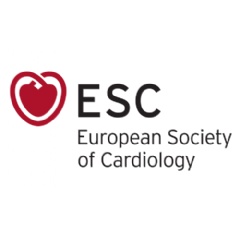Resuming sexual activity soon after heart attack linked with improved survival

Returning to usual levels of sexual activity within a few months after a heart attack is positively associated with long-term survival. That’s the finding of a study published today in the European Journal of Preventive Cardiology, a journal of the European Society of Cardiology (ESC).1
“Sexuality and sexual activity are markers of wellbeing,” said study author Professor Yariv Gerber of Tel Aviv University, Israel. “Resumption of sexual activity soon after a heart attack may be a part of one’s self-perception as a healthy, functioning, young and energetic person. This may lead to a healthier lifestyle generally.”
Sexual activity is a form of physical exercise, increasing heart rate and blood pressure.2 Sudden vigorous physical exertion can sometimes lead to a heart attack (medically termed myocardial infarction).3 Despite this triggering effect, regular physical activity reduces the long-term risk of adverse heart-related outcomes. Similarly, episodic sexual activity can sometimes trigger cardiac events, yet this risk is lower in individuals who exercise regularly.4
“For this and other reasons, some patients (including younger ones) hesitate to resume sexual activity for long periods after a heart attack,” said Professor Gerber.5
This study examined whether resumption of sexual activity shortly after hospitalisation for a first heart attack was associated with survival over more than two decades.
Data were obtained from the Israel Study of First Acute Myocardial Infarction. The study included 495 sexually active patients aged 65 years or under who were hospitalised for a first heart attack in 1992 to 1993. The average age was 53 years and 90% were men.
Information about the frequency of sexual activity was collected by interview at two time points: during the initial hospitalisation (when sexual activity was reported for the year preceding the heart attack) and 3–6 months afterwards (when it was reported for that time point). Based on the frequency reported at the two interviews, participants were classified into two groups: those who abstained from sexual activity or decreased its frequency following the heart attack (47%) versus those who maintained or increased its frequency after the heart attack (53%).
During a median follow-up of 22 years, 211 (43%) patients died. When comparing the risk of death between the two groups, the investigators accounted for baseline differences in other characteristics which could also predict mortality, such as socioeconomic status, depression, physical activity, obesity, self-rated health, and the severity of the heart attack.
Maintaining/increasing the frequency of sexual activity within the first six months after a heart attack was associated with a 35% lower risk of death compared with abstaining/reducing the frequency of sexual activity. The survival benefit linked with maintaining/increasing the frequency of sexual activity was mostly attributable to a reduction in non-cardiovascular mortality such as cancer.
Professor Gerber said that becoming sexually active again shortly after a heart attack may be a marker for better clinical and psychosocial rehabilitation (i.e. better recovery). “Improved physical fitness, stronger spouse relations, and a mental ability to ‘bounce back’ from the initial shock of the event within a few months are among the possible explanations for the survival benefit observed among the maintained/increased group,” he said.
“On the other hand, patients who perceive their health as poor might be less likely to start having sex again,” he added. “They may also be less likely to adhere to cancer screening tests and other prevention practices during follow-up. This may explain the strong inverse association between resumption of sexual activity and cancer mortality that was seen in our study.”
Professor Gerber noted that the low proportion of women and relatively young age of participants may limit the generalisability of the results to females and older individuals. He added that this was an observational study and causation cannot be assumed. “Numerous physical and psychosocial health parameters are required for maintaining regular sexual activity,” he said. “In light of this, the net benefit of sexual activity itself is still a matter of debate.”
Professor Gerber concluded: “These findings should serve to reduce patients’ concerns about returning to their usual level of sexual activity soon after a heart attack.”
Follow us on Twitter @ESCardioNews
Acknowledgment: The Israel Study of First Acute Myocardial Infarction was founded and led by the late Prof. Yaacov Drory, a passionate, creative and dedicated cardiologist and researcher.
Funding: The Stanley Steyer Institute for Cancer Epidemiology and Research, and the Lilian and Marcel Pollak Chair in Biological Anthropology, Sackler Faculty of Medicine, Tel Aviv University, Israel, in part.
Disclosures: None.
For more information see: Sexual counselling for individuals with cardiovascular disease and their partners.
References
1Cohen G, Nevo D, Hasin T, et al. Resumption of sexual activity after acute myocardial infarction and long-term survival. Eur J Prev Cardiol. 2020. doi:10.1093/eurjpc/zwaa011.
2Palmeri ST, Kostis JB, Casazza L, et al. Heart Rate and Blood Pressure Response in Adult Men and Women During Exercise and Sexual Activity. Am J Cardiol. 2007;100:1795–1801.
3Franklin BA, Thompson PD, Al-Zaiti SS, et al. Exercise-Related Acute Cardiovascular Events and Potential Deleterious Adaptations Following Long-Term Exercise Training: Placing the Risks Into Perspective–An Update. A Scientific Statement From the American Heart Association. Circulation. 2020;141:e705–e736.
4Dahabreh IJ, Paulus JK. Association of Episodic Physical and Sexual Activity With Triggering of Acute Cardiac Events. JAMA. 2011;305:1225–1233.
5Lindau ST, Abramsohn E, Bueno H, et al. Sexual Activity and Function in the Year After an Acute
Myocardial Infarction Among Younger Women and Men in the United States and Spain. JAMA Cardiol. 2016;1:754–764.
About the European Society of Cardiology
The ESC brings together health care professionals from more than 150 countries, working to advance cardiovascular medicine and help people to live longer, healthier lives.
About the European Journal of Preventive Cardiology
The European Journal of Preventive Cardiology is the world’s leading preventive cardiology journal, playing a pivotal role in reducing the global burden of cardiovascular disease.
tinyurlis.gdclck.ruulvis.netshrtco.de

